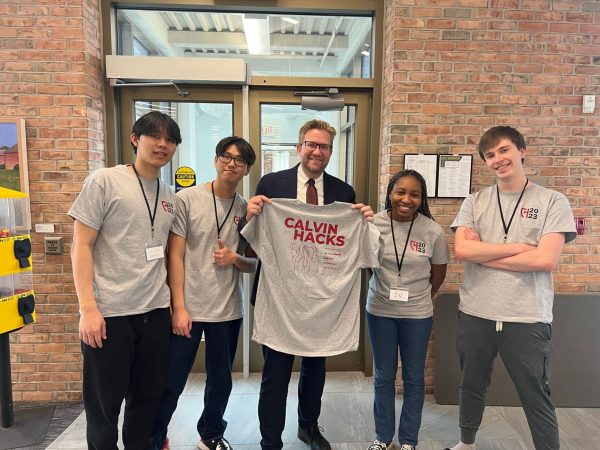Geo Department works for clean water in Liberia
During the summer, two seniors, Grace Bolt, Megumu Jansen and Geology professor Jason Vanhorn conducted research in Liberia as part of the Calvin College Clean Water Institute project. During that time, Bolt, Jansen and Vanhorn worked closely with a company called Sawyer Products, which provides clean water to the entire nation of Liberia. Sawyer creates water filters that are distributed to remote villages in the country that lack the resources for clean water infrastructure.
As geographers, Bolt, Jansen and Vanhorn mapped the effects of this project on an online application called the Liberia Mapping System. After mapping these effects in the system, they collaborated with other summer researchers in the mathematics and statistics department who helped them to interpret the data they received. Next, they entered the data that showed the filter’s impact on the Liberians’ health into the system for further analysis.
In addition to the project of distributing filters, Bolt, Jansen and Vanhorn were responsible for mapping the background data for Liberia. A look into the Liberia Mapping System showed the historical and economic, as well as demographic, data of the country. Thus, the team deemed it necessary to include this data as historical and social factors that had impacted the health sector.
According to the team, the data they analyzed seemed very promising. The information provided served as an easy way to visualize the effectiveness of Sawyer’s filters. Additionally, it showed that villages that have begun to use the filters had seen a significant reduction in rates of diarrhea as well as other waterborne diseases. Also, the data showed that this improvement in health could have many indirect benefits to the nation.
For instance, school attendance and the number of people who commute to work will increase which increases the overall productivity of the country. Overall, the Liberia Mapping System also serves as a large collection of various geographical data, and with the inclusion of this new data, the team believes it can have many applications for other researchers looking for additional information about the nation.





